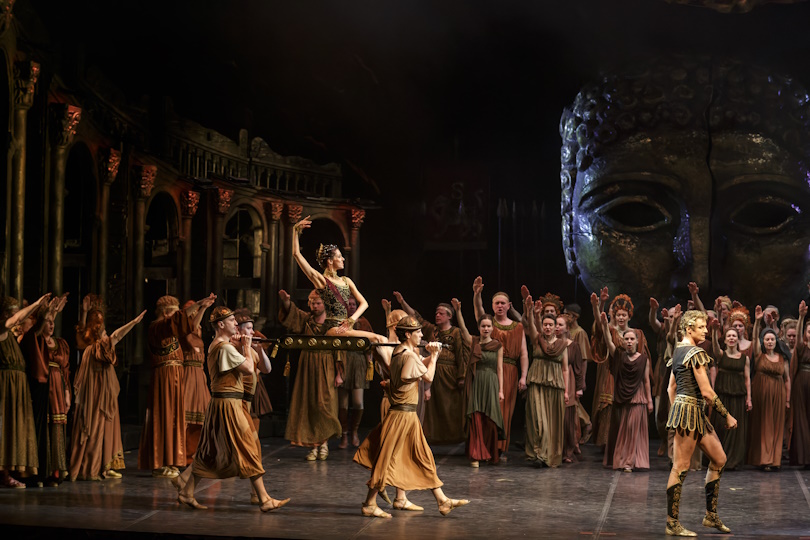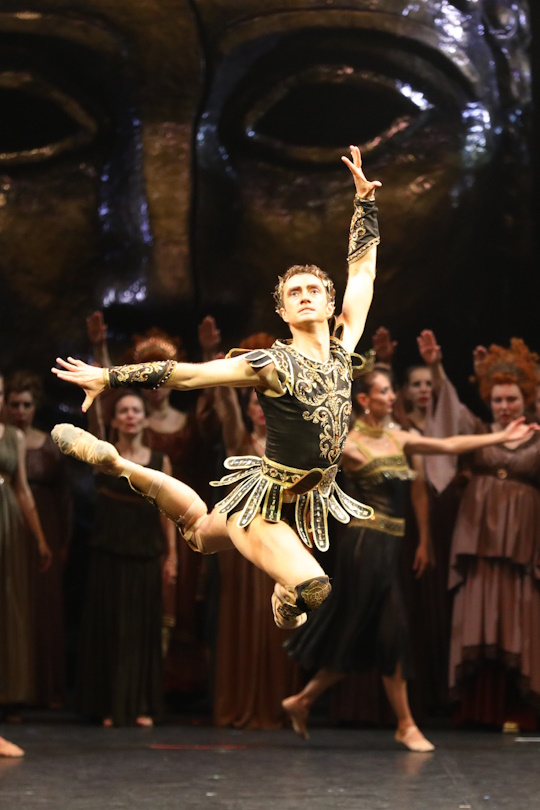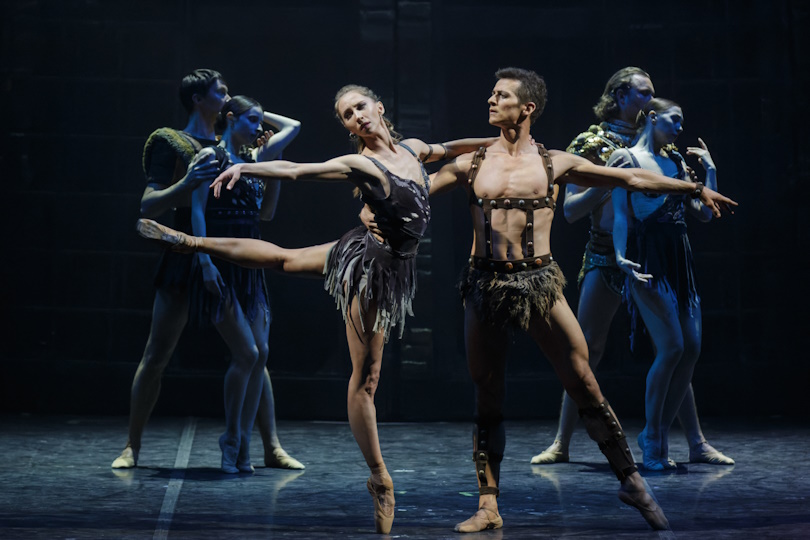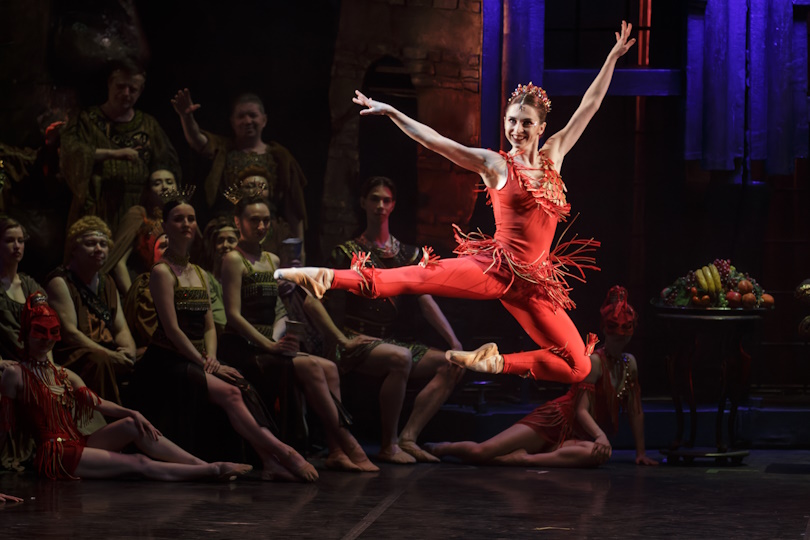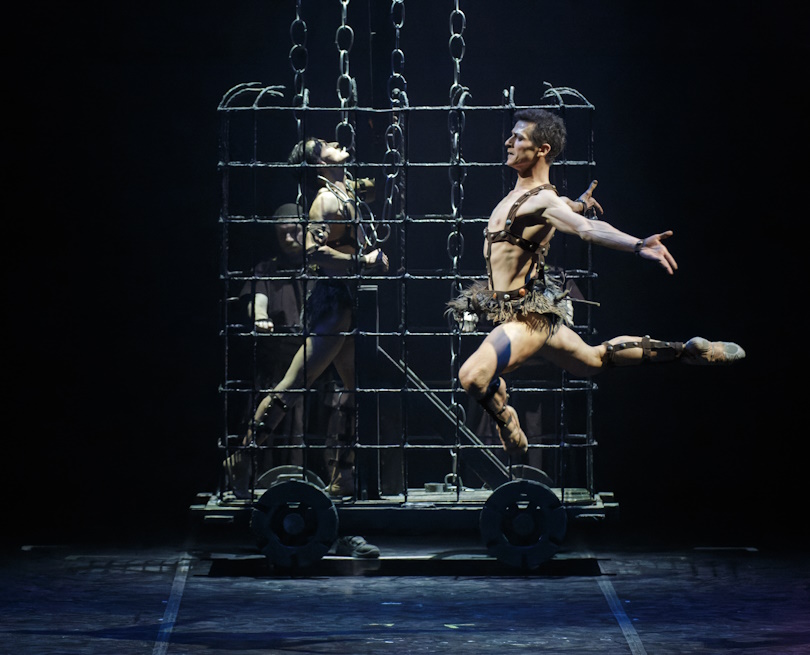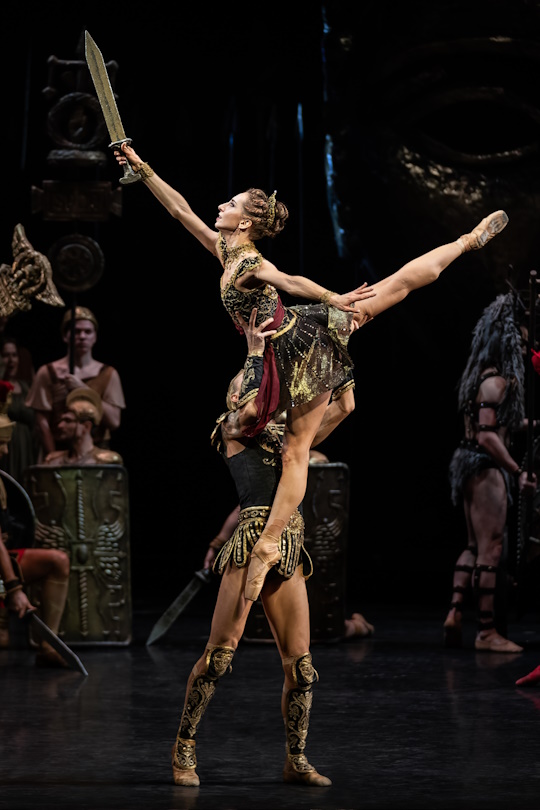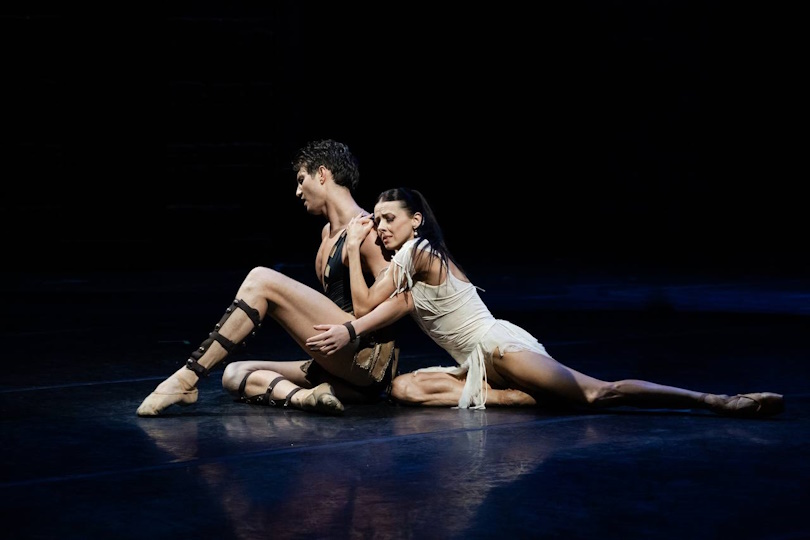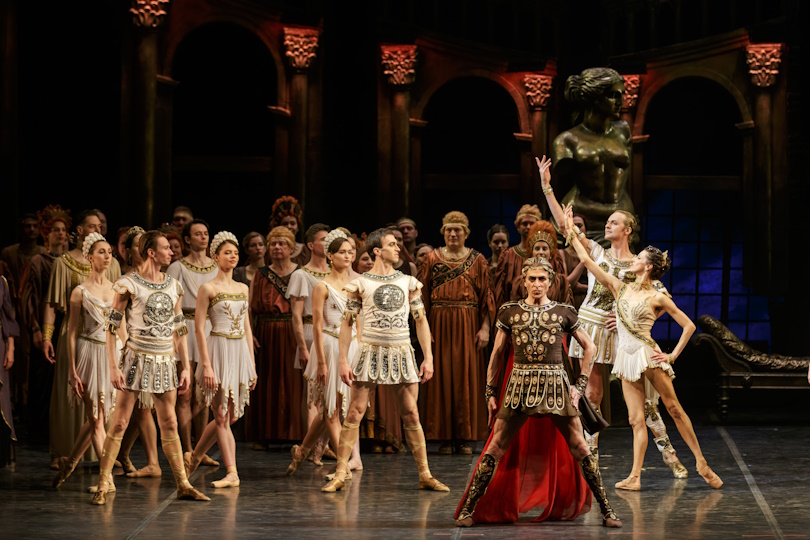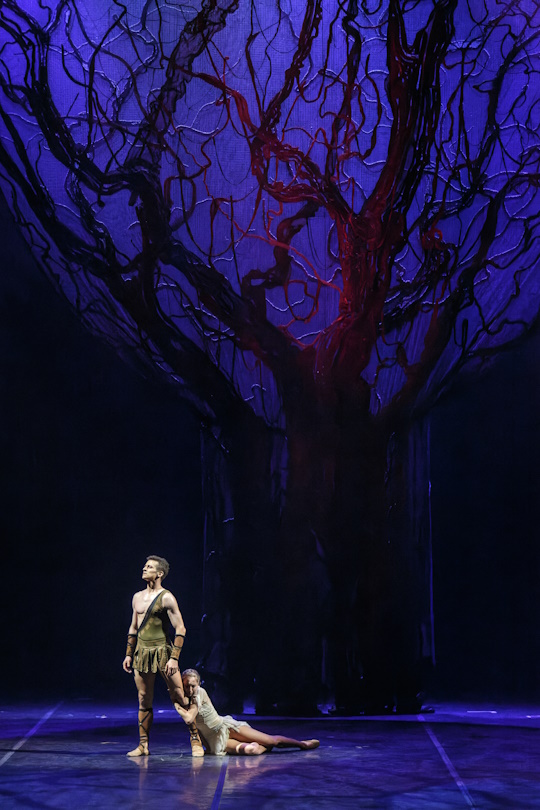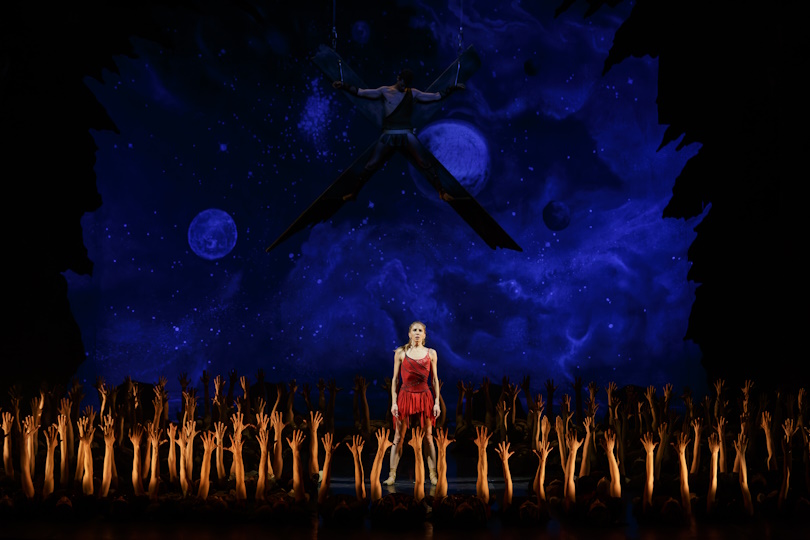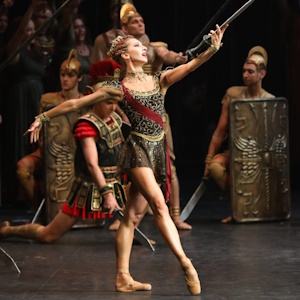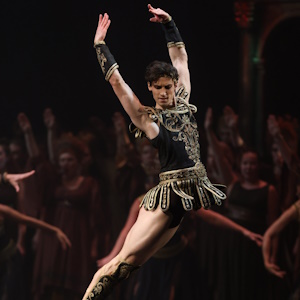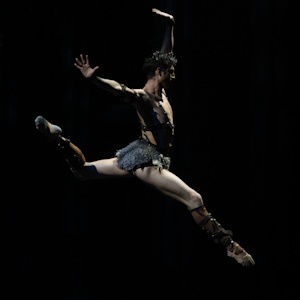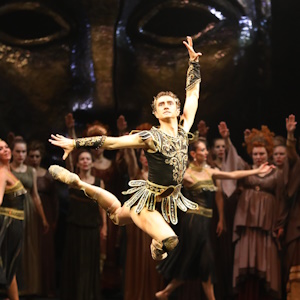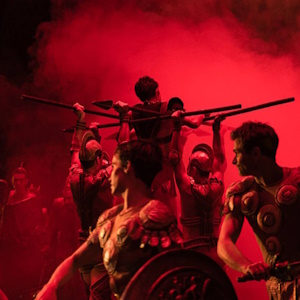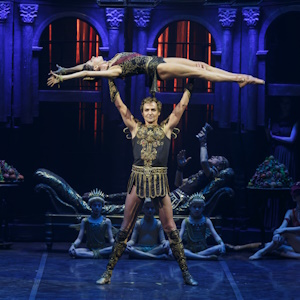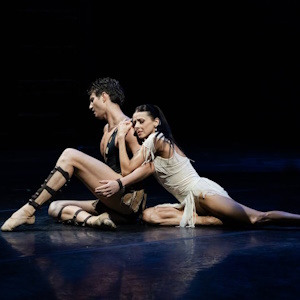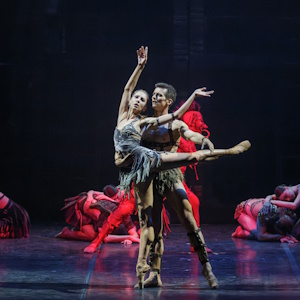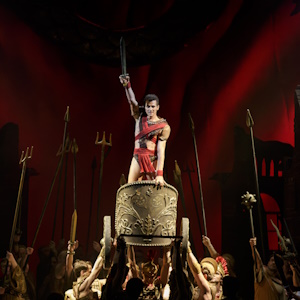
Spartacus
ballet in two acts
music by Aram Khachaturian
Cast
Imperial Rome, with its magnificent processions, orgies, and gladiatorial combats, provides a spectacular backdrop for this dramatic story of the fight for human dignity and freedom. The gladiators’ revolt is doomed to failure, but that does nothing to reduce the tension in the auditorium since in every scene, the characters give a full display of all the qualities of human nature in the face of brutal retribution.
";s:4:"TYPE";s:4:"HTML";}Act one
Scene one. Roman Forum
A square in Rome. In the centre of the square stands a cage with slaves. General Pompey appears on a chariot pulled by the captives Crixus and Spartacus.
Scene two. Barracks
A barracks at the gladiator school. To entertain the slave warriors, the school master Ares brings in concubines. Among them is Valeria. Spartacus is enchanted with her, and Valeria returns his affection. The servants interrupt the lovers’ rendezvous.Scene three. Palace
General Crassus and the courtesan Sabine preside over a noisy, uninhibited bacchanalia. The guests demand new spectacles, and gladiatorial fights in the amphitheatre await them.Scene four. Arena
Crixus defeats the Nubian Pyrrhus in a short-sword duel. Other gladiators enter the arena, Spartacus among them. At the climax of the fight, Spartacus refuses to kill his last opponent and walks off the battlefield. This breach of ritual provokes Crassus‘ soldiers to attack Spartacus, but Crassus, impressed by his courage, stops them.Scene five. Barracks
Crixus and Spartacus call for a rebellion: it is better to die as free men than to live as slaves. The gladiators attack the guards, seize their weapons, and break free.Scene six. MT Vesuvius
Valeria and Spartacus witness the first sunrise of freedom. More people arrive at the rebel camp — escaped slaves inspired by the gladiators’ bold act. Spartacus is chosen as their leader.Act two
Scene seven. Feast at Sabina's place
The guards bring in the captured Crixus. Crassus challenges the gladiator to a duel and easily defeats him. Sabine charms Crixus. Pompey, displeased with Sabine’s behaviour, leaves the villa. At this moment, Spartacus’s army bursts into the palace. Crixus pleads for mercy for those present. A quarrel breaks out between Crixus and Spartacus. Spartacus and his warriors return to the camp.
Scene eight. Senate
The rebellion has spread throughout Italy. Pompey demands action from Crassus. Crassus mocks the senators’ fears and promises to crush Spartacus’ army.Scene nine. Sabina's room
Crassus and Sabine conspire against Spartacus. They plan to use Crixus to infiltrate the rebel camp along other courtesans to distract the gladiators.Scene ten. Woods
Shepherds capture shepherdesses disguised as sheep. With the arrival of the gladiators, the shepherds abandon their games and join forces with the brave rebels. Crixus leads the courtesans into Spartacus’ camp. Taking advantage of the gladiators‘ revelry, Crassus’s forces encircle the camp. In despair, Crixus rushes to Spartacus and begs to be killed. Spartacus refuses, so Crixus seizes a dagger and plunges it into his own chest.Scene eleven. Battlefield
Word reaches Spartacus that a huge army is advancing to reinforce Crassus. Spartacus has no choice: it is better to die in battle than to become a slave again.Scene twelve. Battle
Surrounded by Romans, Spartacus falls. The rebels are defeated. Valeria mourns Spartacus and his fallen comrades.Premiere of the production: 29 April 2008
Back on Stage: 7 September 2018
- Libretto, choreography and productionGeorgy Kovtun
- Stage and Costume DesignVyacheslav Okunev
- Lighting DesignerAlexander Kibitkin



















